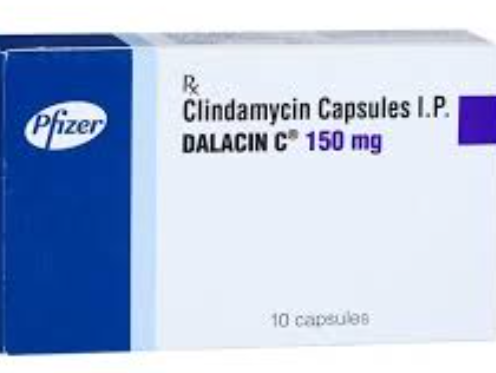
DALACIN-C 150mg Price
Active Substance: Clindamycin (as HCl).
Overview
Welcome to Dwaey, specifically on DALACIN-C 150mg page.
This medicine contains an important and useful components, as it consists of
Clindamycin (as HCl)is available in the market in concentration
Name
Clindamycin
Precaution
Renal and hepatic diseases; pregnancy and lactation; GI disease; elderly, females, neonates, atopic patients. Regular monitoring of blood counts, liver and kidney functions. Lactation: Excreted in breast milk; manufacturer suggests discontinue drug or do not nurse (AAP Committee states compatible with nursing)
Indication
Dental infections, Respiratory tract infections, Skin and soft tissue infections, peritonitis, acne, anaerobic infections, endocarditis, Toxic shock syndrome, Bacterial vaginosis, Pelvic inflammatory disease
Contra indication
Hypersensitivity.
Side Effect
Diarrhoea, nausea, vomiting, abdominal pain; erythema multiforme, contact dermatitis, exfoliative and vesiculous dermatitis, urticaria; eosinophilia; local irritation, thrombophloebitis. Potentially Fatal: Gasping syndrome (neonates); pseudomembranous colitis.
Pregnancy Category ID
2
Mode of Action
Clindamycin inhibits protein synthesis by reversibly binding to the 50S subunit of the ribosomal thus blocking the transpeptidation or translocation reactions of susceptible organisms resulting to stunted cell growth.
Interaction
May enhance the action of neuromuscular blocking agents (e.g. atracurium). May antagonise the effects of parasympathomimetics. May competitively inhibit the effects of macrolides, ketolides, streptogramins, linezolid and chloramphenicol. Increased coagulation tests (prothrombin time/INR) and/or bleeding w/ vit K antagonists (e.g. warfarin, acenocoumarol, fluindione).
Pregnancy Category Note
Information not available
Adult Dose
Child Dose
Renal Dose
Administration
